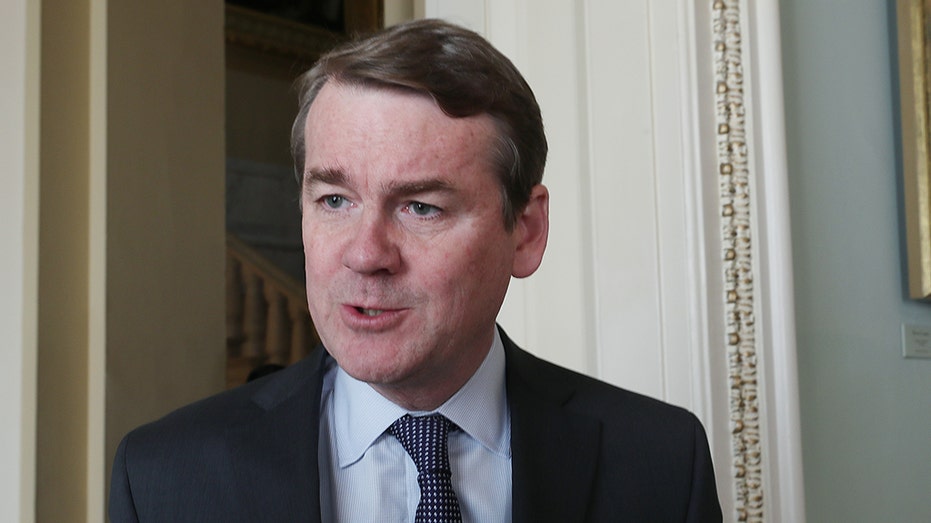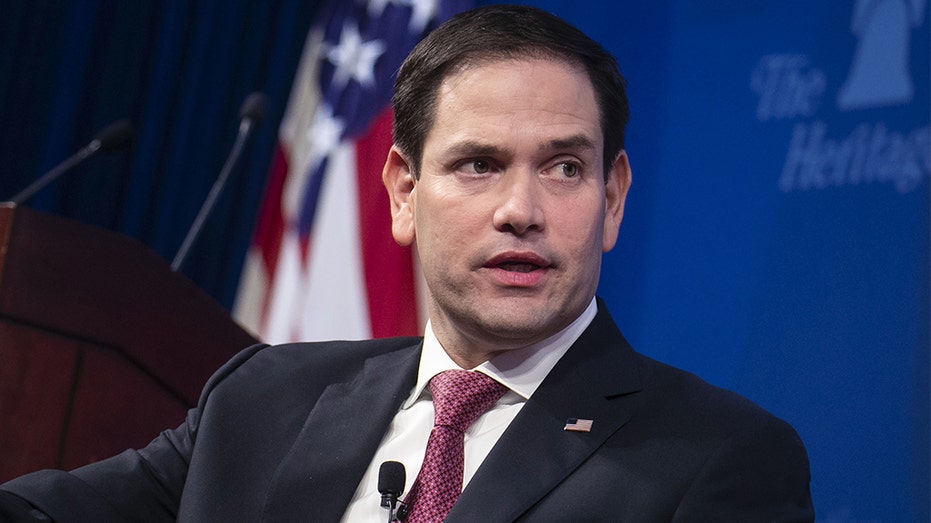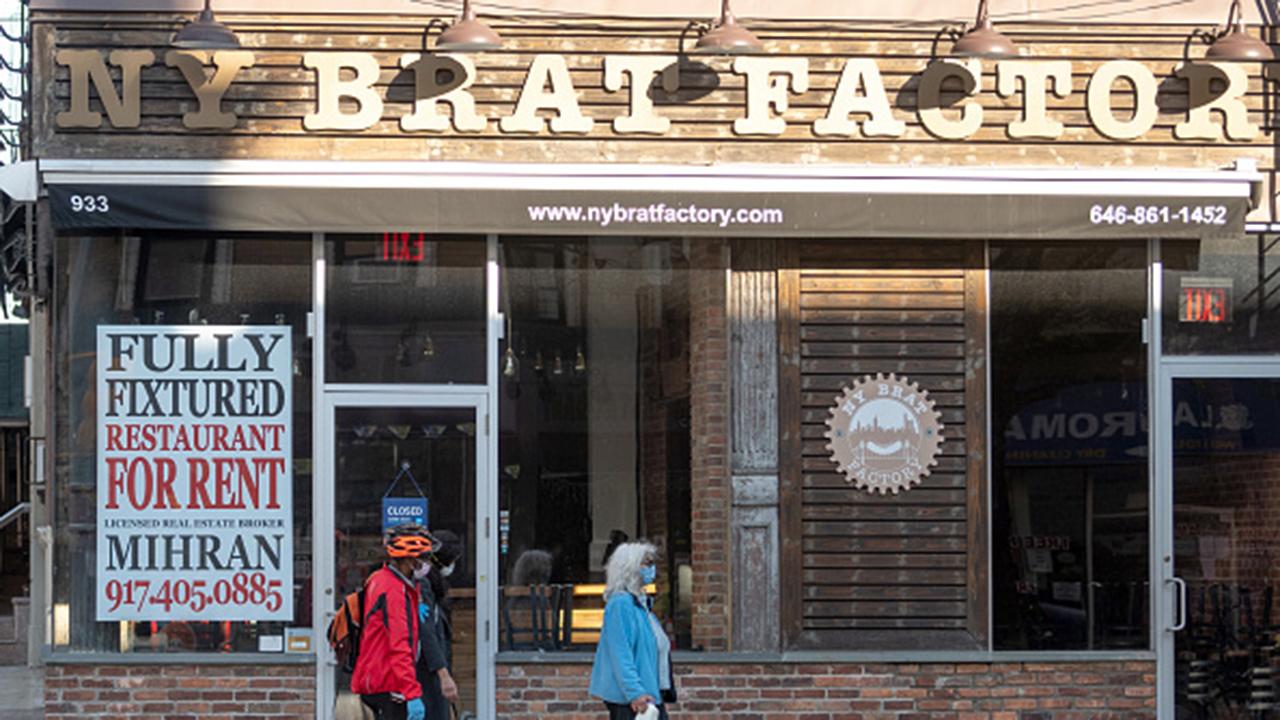Former Starbucks CEO Schultz: 'I'm trying to be a voice' for small-business owners
'It breaks my heart to talk to people today ... who are facing catastrophic challenges,' Schultz says
Former Starbucks CEO Howard Schultz on Wednesday said he is "trying to be a voice" for struggling small-business owners by supporting a Senate bill known as the RESTART Act.
"Starbucks has stores today, fortunately, in almost every community in America. As I have visited those communities over the years, I have seen firsthand the like-minded dream that other small business owners have, who are adjacent to us ... and it pains me. It breaks my heart to talk to people today ... to no fault of their own, who are facing catastrophic challenges," Schultz said during a Small Business Roundtable discussion.

Former Starbucks CEO Howard Schultz in Lawrence, Kansas. (AP Photo/John Hanna)
He was joined at the discussion by Sen. Michael Bennet, D-Colo., who is sponsoring the bill.
Small business owners struggling to stay afloat amid the coronavirus pandemic "don't have a voice; they don't have lobbyists; they don't have the resources to have access to members Congress, and so I'm trying to ... be a voice for them," said Schultz, who had flirted with running for president as an independent.
PPP RESPONSIBLE FOR 'MAJORITY' OF JOBS CREATED SINCE MAY, SBA ADMINISTRATOR
He said he was able to live the American dream after coming from a "background having grown up in public housing" and going on to create a $100 billion coffee chain the way he "envisioned it." Shultz added, however, that "COVID didn't exist back then."
The RESTART Act, which has been backed by CEOs and business groups, would extend the Small Business Administration's $659 billion Payment Protection Program, which helped save 51 million jobs, according to a Sept. 1 report from Republicans on the House Subcommittee on the Coronavirus Crisis.
PPP ENDING WITH $138B LEFT OVER. WHAT HAPPENS TO THE MONEY NOW?
The legislation, which has 54 Republican and Democratic co-sponsors but little chance of advancing without the support of Majority Leader Mitch McConnell, would provide PPP loans that would cover up to six weeks of payments for payroll, benefits and operations expenses for businesses with less than 500 full-time employees that have experienced a 25% decline in revenue.

Democratic presidential candidate Sen. Michael Bennet (D-CO) speaks to reporters during a break in the Senate impeachment trial, at the U.S. Capitol on January 29, 2020 in Washington, DC. (Photo by Mark Wilson/Getty Images)
The SBA would also have to "guarantee 100 [percent] of program loan amounts made to certain small businesses" with 5,000 employees or less for "an amount that is not greater than 45% of 2019 gross receipts." Some loans would be forgivable while others would have to be paid over seven years.
TRUMP ADMIN RELEASES NAMES OF ALMOST 700,000 PPP BORROWERS
More than 100 high-profile CEOs have signed a letter in support of the bill, including Schultz, Alphabet CEO Sundar Pichai, Walmart CEO Doug McMillon, Facebook COO Sheryl Sandberg, former McDonald's CEO Don Thompson, Walt Disney CEO Bob Chapek and others.
Republicans who oppose the legislation are concerned about more spending as Congress struggles to come up with a second coronavirus relief package.
PPP ROUND 2 TARGETS SMALL, HARD-HIT BUSINESSES
Sen. Marco Rubio, R-Fla., came up with similar legislation in July called the Continuing Small Business Recovery and Paycheck Protection Program Act that would allow small businesses with less than 300 employees and 50% quarterly revenue loss compared to 2019 to apply for a second round of loans.

Rubio speaks during an event at the Heritage Foundation in Washington, D.C., Feb. 11, 2019. Photographer: Al Drago/Bloomberg via Getty Images
The second round would total $190 billion, and the bill would also make $100 billion in loans available later for the "hardest hit" businesses.
Bennet said Rubio's proposal of "$100 billion of loans is a great start, but it’s not going to meet the large portion of the need. The amount is substantially greater than that," according to Politico.
Shultz said during the webinar Wednesday that he hopes "this is not a moment time people like [Senate Majority Leader Mitch] McConnell and others are going to play politics."
McConnell unveiled his own slimmed-down coronavirus relief bill Tuesday.
GET FOX BUSINESS ON THE GO BY CLICKING HERE
Labor advocates also worry that the bill would boost large corporations that aren't dependent on employees by allowing those entities to take out loans for franchise fees, according to Politico.
Marty Leary, research director for hospitality union Unite Here, told the outlet that the legislation would provide relief to "economic actors that employ few if any people and need emergency funding the least, namely franchisers, lodging REITs and their shareholders."
"The last thing we need is another program that pretends to support jobs while directing low-cost financial resources and grants to those sectors of the American economy that are not directly involved in employing people, and have access to or have already amassed sufficient cash to survive the pandemic," he told Politico.




















